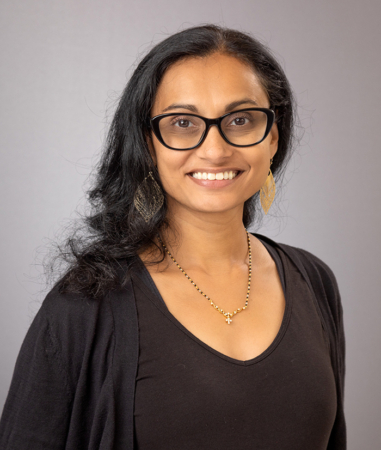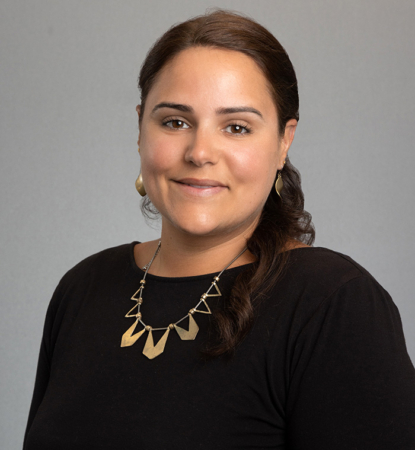SHP Doctoral Recipients Paving the Way for Women of Color in Healthcare
An emergency room physician assistant, faculty member, and mother of two, Dipali Yeh found the thought of pursuing a doctoral degree daunting. But when Rutgers University joined the Big Ten and the School of Health Professions dean urged faculty to get doctoral degrees to tap into new research funding, Yeh realized how badly she wanted it.
Seven years later, in May, Yeh stood in her graduation gown, her Ph.D. finally in hand. As a first-generation immigrant, she had achieved a milestone. She had also become one of a small group of women of color in the Physician Assistant department who in the past year all earned their doctoral degrees, joining colleagues Jessica Gomes and Nkechi Mbadugha, both children of immigrants.
 Dipali Yeh, Ph.D. |
 Jessica Gomes, DHSc |
 Nkechi Mbadugha, DMSc |
|---|
“Women of color with doctoral degrees serve as vital role models,” Yeh said. “For me, personally, it was so important for my boys to see me achieve this. Every night, they’d see me head to my home office after putting them to bed. When they watched me walk across that stage, it all came together for them.”
In a field that often lacks diversity, the women see their degrees as powerful tools to challenge inequities in health care, advance research, and position themselves as mentors and role models to students of color pursuing careers where they are traditionally underrepresented. Research shows that students benefit from mentors who understand their experiences, said Yeh.
“As women of color with doctorates, our responsibility goes beyond personal achievement,” Yeh said. “We carry the power to bring fresh perspectives, to question norms, and to lead others toward professional advancement.”
“Having this degree lets my students see that there are no limits to what they can achieve,” added Gomes. “When students, especially those from underrepresented backgrounds, see their professors succeeding, it helps them shift their mindset from “Can I do this?” to “How will I do this?”
In the broader healthcare landscape, the contributions of women of color with advanced training ensures that diverse perspectives shape healthcare policies and practices.
“This kind of representation is essential for delivering equitable care.” Gomes said. “We understand the challenges faced by our communities, and we bring that understanding to patient care, education, and policy. By advancing our education, we are better equipped to lead, advocate, and inspire positive change in health care.”
Yeh, whose degree is in interprofessional health care studies, said she grew as a researcher, writer, and scholar. Her dissertation, inspired by her work in the emergency room during the COVID-19 pandemic, focused on how healthcare teams respond to crises. For her doctoral degree, Gomes explored the integration of functional medicine in healthcare education and is currently working on the use of artificial intelligence to enhance healthcare learning and practice, while Mbadugha concentrated on the use of concentrated on the use of film to teach psychiatric topics in medical education.
Mbadugha, who doesn’t recall being taught by any Black professors in the sciences, said it is empowering for other Black students to see someone they can identify with. “They talk to me about it all the time,” she said. “Recognizing that a Black woman who grew up in a lower socio-economic environment has made it to this point is important to them. It gives students from a similar background hope that they can also achieve great heights.
